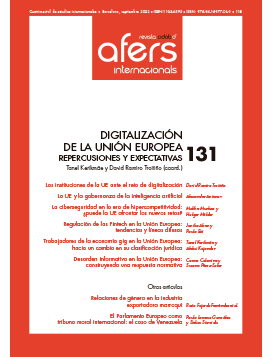Gig economy workers in the European Union: towards changing their legal classification
Keywords:
European Union, gig economy, digital platform, supreme court, labour law, employment, jurisprudence, legal classification, ICTAbstract
While the classification of gig economy workers under European labour law has been controversial for many years, the COVID-19 pandemic made it a priority. The role of the gig economy has changed: from being an employment option that provides supplementary income, it has become many people’s main income source, which is why the European Union (EU) announced its intention to address this issue. In 2021, there was intense activity around gig economy jurisprudence across Europe, with supreme courts in several member states making judgements and new laws classifying the participants in this sector of the labour market. This paper draws on three case studies – from the UK, the Netherlands and Spain – to explore recent developments in gig economy jurisprudence and to draw conclusions for the future.
Revista CIDOB d’Afers Internacionals n.º 131, p. 117-139
Quadrimestral (May-September 2022)
ISSN:1133-6595 | E-ISSN:2013-035X
DOI: https://doi.org/10.24241/rcai.2022.131.2.117/en
Reception date: 25.11.21 ; Acceptance date: 03.05.22













